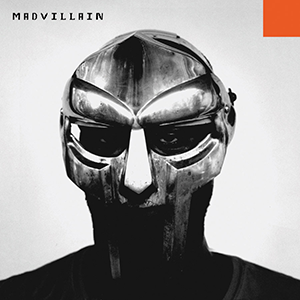“Everything’s gonna be ok!” Tunde Adebimpe cries during the chorus of “Trouble,” one of the less essential but most emotional tracks on TV on the Radio’s newest offering, “Seeds,” released Nov. 18. It seems a bit odd at first, as this is the first release the band has crafted since the tragic death of bassist Gerard Smith from lung cancer in 2011. However, the aforementioned line is indicative of the band’s defiantly positive attitude throughout the album. It is not that TV on the Radio is ignoring the unmistakable mark of Smith’s death; it’s that they chose to move forward with a newfound sense of purpose, seemingly as a loving tribute to him.
“Seeds” is marked by clarity in both the musical and emotional realms. Dave Sitek’s production and guitar playing are not the cacophonous wail they once were and on “Seeds,” he gives almost every track a chrome-like production treatment.
This works as a two-edged sword for the band, as the clarity allows key moments, like the celebratory chorus of single, “Careful You,” to really pop. But it also robs the band of the experimental, almost mysterious haze of noise that marked its early work so clearly.
Underneath its sleek exteriors, TV on the Radio’s earlier records, 2006’s “Return to Cookie Mountain” and 2008’s “Dear Science,” seemed to offer limitless possibilities of expression and expansion. “Seeds,” for all of its classic and delightful TV on the Radio-isms, does not quite carry that same rawness, that revelatory feeling of pure discovery.
That is not to say that the album does not have some truly fantastic moments. “Seeds’” first half is stellar from beginning to end. The angelic harmonies and gospel-like introduction of opener “Quartz” simply could not come from any other band. Resting easy in familiar strengths, “Quartz” is a satisfying opener but is quickly surpassed by “Careful You.”
With urgent, but sleekly romantic lyrics and the aforementioned exultant chorus, “Careful You” is a perfect extension of the band’s brilliant 2011 single, “Will Do.” It is the sort of love song the band can pull off in its sleep. Although guitarist Kyp Malone’s “Could You” is solid enough, it is more of a preface to the album’s lead single, the relentless “Happy Idiot.”
When I first heard “Happy Idiot,” it struck me as being, other than perhaps “Wolf Like Me,” the most straightforward rock song the band has ever written. Its up-tempo pace, fairly straightforward bass line – Gerard Smith is especially missed on this track – and typical song structure mark it, ironically, as an oddity in the band’s catalog. Its nervous energy is unquestionable, but it lacks the emotional resonance the band so often displays. But “Happy Idiot” is quickly upended by the album’s two best songs.
The first of these upper-echelon singles is “Test Pilot,” which seems like it could have been drawn straight out of the band’s early repertoire. Adebimpe’s longing lyrics and soaring vocal melodies are an impeccable match with the track’s lightly distorted beats and quietly nasty guitars. Malone then answers with “Love Stained,” which easily tops “Could You,” or any song he contributed to the band’s 2011 album, “Nine Types of Light.”
The song’s truly glorious chorus lets not only his peerless vocal range, but Sitek’s immaculate production, shine. For at least two tracks, you get a one-two punch of the band that made “Dear Science,” a remarkably dynamic rock band consistently breaking down the doors of the genre.
The problem with the album’s second half is that it stays more within the boundaries of typical rock than anything the band has previously recorded. “Right Now” is decent at best, while the riff-dominated “Winter” may be the most boring song the band has ever recorded. “Lazerray” could literally be a Ramones song with its fuzzy guitars, quick tempo and simple structure. The aforementioned “Trouble” is somewhat uplifting in its positive attitude, but otherwise a bit sluggish musically, with an overly prominent acoustic guitar in the intro and somewhat syrupy strings in the chorus.
But, the closing title track is a welcome last-minute change. A sweet song with hopeful lyrics, it has a more prominent melody and less convention in its structure. More importantly, it lets Sitek get the last say in “Seeds,” with some of his old-fashioned gale-force guitar playing poking its head through the clouds at the song, and the album’s conclusion.
“Seeds,” more than anything, sounds like a release. Its title is a reflection of moving on and preparing for a new phase for the band without one of its prime architects. It is not an entirely glorious return, as it shows the holes left by Smith’s absence quite prominently at times, but considering the circumstances, it is a strong effort. Hearing Malone and Adebimpe harmonize over Sitek’s visceral, powerful playing is a truly magical experience and something that has not been heard in more than three years. “Seeds,” in its best moments, manages to remind everyone just what a unique ensemble TV on the Radio is.
Jackson Maxwell can be reached at [email protected].


















